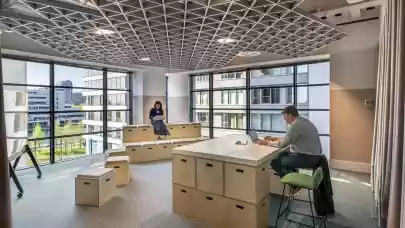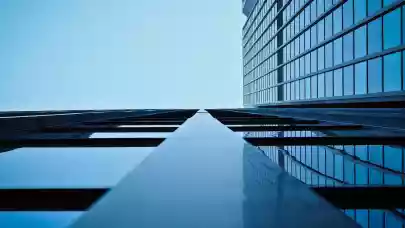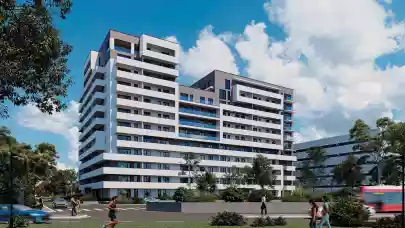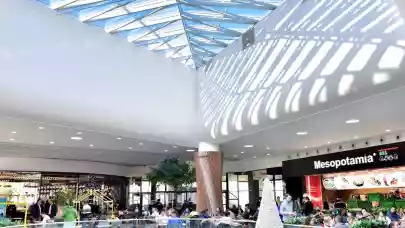
The past year has brought a lot of economic turbulence, from the still-felt effects of the pandemic to the consequences of the war in Ukraine, rising commodity prices and disrupted supply chains to currency fluctuations and energy price hikes. This situation is driving the rising costs associated with building and finishing commercial real estate. At the same time, price increases are accompanied by an evolution in office design as companies increasingly opt for a hybrid work model and pay more attention to employee welfare and sustainability. Each year, Tétris takes a look at the current budget challenges associated with office fit-outs in the EMEA region, compares them with current trends, and summarizes everything in its Fit-Out Cost Guide report.
On the path of creating new standards in the workplace
Flexibility, advanced technology, prioritizing health and well-being in the office environment, as well as concern for sustainability, are the key areas that will shape the office real estate sector in the coming years. Experts from Tétris took them under the microscope when designing JLL's new London office, and the data collected was the basis for the report.
"JLL's London headquarters sets new standards for office space. It is diverse, inclusive, and hybrid-ready. At the same time, it was built with the environment and ecology in mind. Our designers incorporated the principles of the circular economy by recycling and upcycling furnishings that were transferred from the previous headquarters or obtained from other sources—as much as 80 percent of the furniture comes from such processes", explains Wojciech Kaczmarczyk, Chief Commercial Officer, Tétris in Poland.
In the new JLL office, the eco-friendly approach to furnishings is also evident, among other things, in countertops that were made entirely from industrial waste and recycled acoustic panels. Thanks to the right choice of materials, it was possible to reduce the carbon footprint by 37 percent compared to the target baseline. As highlighted in the report, sustainability is now a key factor influencing how tenants acquire, equip, and manage their assets. Certification is growing in popularity as a way to demonstrate green credentials. A recent JLL survey found that 77 percent of employees will increasingly expect their workplace to have a positive impact on the environment, and 74 percent of organizations are willing to invest in green office solutions.
A growing interest in inclusivity
Much has been said about employee health since the first wave of the Covid-19 pandemic. However, modern offices are going a step further. On the one hand, corporations are opting for WELL certification and impressive green walls that improve air quality and humidity, while on the other hand, they are taking into account physical or cultural differences among employees.
"In Western European countries, the notion of inclusivity is becoming more common in office design. In our home market, we encounter it less often, but we can assume that in 2023 this trend will develop, as we already apply certain aspects of it in our daily work. It is about incorporating height-adjustable desks, furniture tailored to different body shapes, and a varied work environment with neurobiological diversity in mind. That's why we use several types of spaces in the offices we design so that employees can choose and adjust the place where they perform their duties to their preferences—we're talking about areas with sofas, quiet work rooms, or classic open spaces", explains Wojciech Kaczmarczyk.
Office among the work benefits
Modern offices, offering exciting and comfortable interiors, are undoubtedly attracting new talents to organizations, and human resources experts emphasize that the employment market will persist in 2023. Although hybrid work and flexibility are the most important benefits today, according to a JLL survey, 60 percent of people admitted that the office is a crucial part of the new hybrid routine. Therefore, the office is and will continue to be a vital element for those organizations that want to be seen as an attractive employers. As many as 75 percent of companies polled by JLL said they would choose to invest in a high-quality office at the expense of the size of their leased space.
"In office trends, there will be a focus on innovation and solutions concentrated on collaboration, learning, and socialization. Open space is doing well and will continue to dominate in companies because such a layout facilitates collaboration and, with the reservation of seats at desks, it works well for hybrid work", says Wojciech Kaczmarczyk.
How do the new realities translate into costs?
An office designed with a hybrid approach, with flexible, collaborative spaces, will generally be more expensive due to custom design, unique features, and increased technology needs. Nevertheless, in such spaces, technology, apps, and artificial intelligence play an important role. On the one hand, they allow employees to reserve desks or meeting rooms, and the employer can control office occupancy and adjust air temperature, ventilation operation, or lighting accordingly to this variable. It has a real and significant impact on office maintenance costs.
"Market observations suggest that some organizations may reduce office space due to fewer employees occupying it at one time. Such a decision can potentially offset the higher cost of finishes per square meter, leaving the total capital cost of the project unchanged. At the same time, with modern technologies and solutions affecting the higher cost of finishes, we can reduce operating costs in the long run - which is not insignificant in the final balance", comments Wojciech Kaczmarczyk.
Certainly, when estimating the budget for finishing an office space, one has to anticipate higher amounts now compared to previous years. Costs are rising due to the limited availability of materials, inflation, and general price increases. These effects are being felt throughout the construction industry, but experienced companies like Tétris with an extensive network of subcontractors and established relationships can respond to these challenges.



